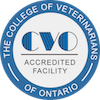Life Stage Diets
Throughout their lives, the nutritional needs of animals change. The need of kittens and puppies are different than that of an older dog or cat. It is important to recognise that by feeding pets according to the life stage they are at will help them maintain good health throughout their lives. In addition to providing advice about your pet’s nutritional requirements, our healthcare team will assess their weight and determine the appropriate amount to feed to maintain a healthy weight.
Urinary Health
Feline lower urinary tract disease is a general term for various infections, inflammatory diseases and other conditions affection your pet’s urinary tract. Sometimes it is caused by bladder stones. Risk factors include stress, excess weight, breed, certain foods and low water intake.
Does your cat have a urinary disorder?
Signs to look for:
Accidents’ outside the litter box
Frequent attempts to pee
Blood in the urine
Difficulty or pain while peeing
What you feed your pet plays an important role in helping manage urinary tract health.
Weight
Weight problems are common in cats and dogs, and can be successfully managed through changes in food or a nutrition program. Combining a change in nutrition with increased exercise is the most effective way of achieving a healthy weight.
If your pet is overweight, you may notice some of the following signs:
Difficulty in walking
Slow movement
Shortness of Breath
Loss of an obvious waits
Ribs cannot be easily felt when running your hand along your pet’s side
If your pet is overweight our veterinarians will recommend a food specially formulated for weight loss.
Exercise Tips for Dogs:
Enjoy regular walks with your dog.
Encourage play in the yard and in the home
Toss a frisbee or a ball, or play a retrieval game
Exercise Tips for Cats:
Shine a laser light on walls or floor for your cat to chase
Use toys to encourage your cat to play
Put food bowls on different levels to encourage walking, particularly up and down stairs
 It’s easy to get confused or overwhelmed by all the pet foods on the market. We can help you weed through the choices and find a puppy or kitten food that will meet your growing pet’s specific nutritional needs. We even carry many nutritionally balanced, veterinary-approved brands in our clinic.
It’s easy to get confused or overwhelmed by all the pet foods on the market. We can help you weed through the choices and find a puppy or kitten food that will meet your growing pet’s specific nutritional needs. We even carry many nutritionally balanced, veterinary-approved brands in our clinic.
 Giant breeds such as Great Danes, Irish wolfhounds, and giant schnauzers have unique dietary requirements. Very few commercial puppy foods offer the ideal mix of calcium, energy, and protein levels that these breeds need. We can provide you with feeding recommendations that will encourage your dog’s maximum growth potential without causing developmental problems. For added convenience, we also stock veterinary-approved diets for giant breeds.
Giant breeds such as Great Danes, Irish wolfhounds, and giant schnauzers have unique dietary requirements. Very few commercial puppy foods offer the ideal mix of calcium, energy, and protein levels that these breeds need. We can provide you with feeding recommendations that will encourage your dog’s maximum growth potential without causing developmental problems. For added convenience, we also stock veterinary-approved diets for giant breeds.
